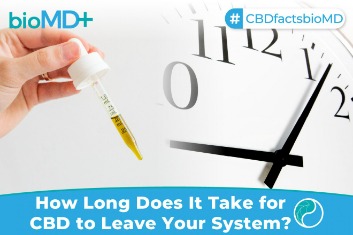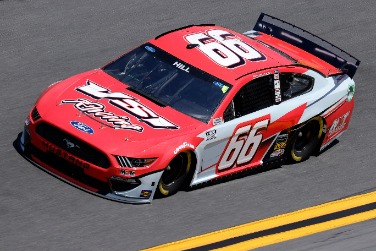The remaining alcohol travels through the small intestine where it encounters greater concentrations of blood vessels. The 80% of alcohol that doesn’t enter the bloodstream through the stomach does so through the small intestine. Taking shots or playing drinking games, for example, typically leads to people drinking more than one standard drink an hour and therefore increasing their blood alcohol content drastically.Taller people tend to have lower blood alcohol levels after consuming the same amount of alcohol as shorter people. A urine test can usually pick up alcohol up to 24 hours after drinking, but a 2007 study showed that some tests can potentially detect alcohol for much longer.
How Long Does Alcohol Stay In Your Pee?
That way, any time you need to go out, you know it is safe to do so without putting yourself or anyone else around you at risk. The lack of enzymes will increase how long alcohol stays in your system. One of the main questions that people who consume alcohol may ask is, how long does alcohol stay in your system? While you might think that there is a straightforward answer to that question, it is actually quite complex. To understand how long it takes for the body to process alcohol, it is worth understanding the path that alcohol takes through your body and how it is broken down. In fact, his breathalyzer test showed a reading of 0.89 blood alcohol content – over the legal limit, as reported by the Salt Lake Tribune.You may feel a bit better but this is because you are less sleepy and have rehydrated your body slightly – you won’t have eliminated any of the alcohol. Sleep has no bearing on the rate at which the alcohol leaves your bloodstream. HAVING a cheeky glass of wine or a well-earned pint of beer has become a staple for many people. Urine tests are more commonly used to test for drugs like marijuana, but they can also be used to test for alcohol.Health complications, especially with the liver, including liver disease , can slow down the body’s natural way of detoxing. This also means that you should eat before you drink to avoid feeling nauseous and getting sick. Eating high-protein foods before and during drinking will decrease your chances of getting drunk. If you drink alcohol on an empty stomach, it will absorb much quicker than it would if you were to have eaten something before drinking. As a result, you’ll become intoxicated more quickly on an empty stomach than you would on a full stomach. There is always a list of side effects that can come from taking medications.
How Long Will It Take For Alcohol To Leave Your Body?
By drinking more water, you are flushing your liver and getting rid of toxins and impurities. In worst-case scenarios, alcoholic cirrhosis can be life threatening. It can cause an array of other unwanted symptoms, and can affect the health of other vital organs. There are three main types of alcohol-induced liver diseases. They include fatty liver, alcoholic hepatitis and alcoholic cirrhosis. Heavy drinkers will graduate from one to the other until it’s too late. Another significant enzyme that removes alcohol from your body is cytochrome P450.We also work with out of network insurance and are ready to answer your questions about coverage. Alcohol use disorders tend to run in families, indicating that there is a genetic component to the abuse of alcohol.The organ breaks down the alcohol into acetaldehyde, a chemical the body recognizes as toxic. Acetaldehyde metabolizes into carbon dioxide, which the body can eliminate. 0.05% – At 0.05% BAC, the average person may exhibit altered and exaggerated body movements and habits, such as speaking louder, poorer vision, and slurring words.

If you believe you or someone you love may be struggling with an addiction to alcohol, let us help you find a solution.
Strength Of Drink
Alcohol can remain in the breast milk for as long as it remains in the blood. As alcohol leaves the blood, it also leaves the milk, making it unnecessary to “pump and dump” breast milk after drinking alcohol. Studies have shown that both genetic and environmental factors can affect how the body processes and deals with alcohol. Some people of East Asian descent lack the enzymes necessary to break down alcohol. This can cause a reaction that includes facial flushing, nausea, dizziness, rapid heart rate, and headache. If someone is showing any of these symptoms, don’t try to snap them out of it or assume that they’ll sleep it off. The only way to deal with alcohol poisoning is by getting emergency medical attention.
- First, you need to understand how your body processes alcohol.
- To break down the ethanol in alcohol, cytochrome P450 produces byproducts that are pretty toxic.
- Drinking a small amount can help people feel relaxed, but too much, too often, can be harmful for health.
- One big caveat here is that there are other, secondary factors at work.
- In most cases, there are little to no symptoms involved with this disease.
Moreover, how long alcohol stays in the system is different for everyone. Here are the different factors that matter and the various drug tests that can detect alcohol consumption months after you consume it. Others accumulate over time and significantly affect your physical and mental health and quality of life. The more alcohol a person drinks, the longer it takes for the alcohol to get out of their system.
How Long Does Alcohol Stay In Your System For Testing?
You’ll start noticing the milder effects of alcohol within 15 to 45 minutes of sipping (think change in mood and maybe you’ll feel a little warm). Here’s everything you need to know — from what counts as drunk, to how your body processes booze, to how long the alcohol effects hang around. EtG tests are considered the gold standard of alcohol tests because they are much more accurate than other tests. However, they are not helpful for situations where the timing of the alcohol is important. For example, in a suspected DUI, an EtG test may register a positive even though the person drank alcohol the day before and isn’t actually intoxicated anymore.Stopping drinking and allowing time to pass is the only true way to sober up. As you get older, your liver works more slowly, so it takes longer to excrete alcohol. Many aging adults also take medication that can affect liver function, slowing the process further. Like many other drugs, alcohol can be detected with a hair follicle drug test for up to 90 days. Alcohol can be detected in urine for three to five days via ethyl glucuronide metabolite or 10 to 12 hours via the traditional method.Remember that you can slow down the rate at which alcohol enters your body, but you can’t increase its elimination rate from the body. Since the alcohol goes to your brain, lungs, and other tissues, you may feel the effects of alcohol almost immediately after you’ve had a drink. The effects of alcohol may continue to build for about 15 to 45 minutes. In the last step of the alcohol life cycle, the liver enzymes break down the alcohol into its by-products and remove them from the body. The rate that alcohol can stay in your system depends on a variety of factors.

How long alcohol is detected in the system depends on what is being tested. Here are the ones you need to pay attention to, and how to know if you may have an anxiety disorder. Beer lovers take note — these are the best craft beer subscription services in 2021. Light beer has a reputation for being better for your health than a regular brew, but is that really the case? Just keep in mind that drinking more than that can be bad for your baby’s growth and development, and can hurt your judgment. Online self-assessment tests can help you determine if you have an alcohol problem.Breath tests can detect alcohol in your system for about 24 hours. If the BAC is above 0.02, it is considered to be at an unsafe level for safety-based tasks such as driving. Alcohol is a depressant that has a short life span in the body. Once alcohol has entered your bloodstream, your body will begin to metabolize it at a rate of 20 milligrams per deciliter (mg/dL) per hour. That means that if your blood alcohol level were 40 mg/dL, it would take about two hours to metabolize the alcohol. Sunshine Behavioral Health strives to help people who are facing substance abuse, addiction, mental health disorders, or a combination of these conditions. It does this by providing compassionate care and evidence-based content that addresses health, treatment, and recovery.
How Long Does It Take For Alcohol To Leave Your System?
Therefore, before drinking, make sure that it is safe to do so when taking your medications. There is a reason why they warn people to not take their medications with alcohol. This is because certain medications can cause liver complications when taken with alcohol. As a result, people that do medicate while drinking will get a higher BAC much quicker than they normally would without taking medications. As mentioned above, numerous factors including your gender, weight, and height can all affect how long alcohol stays in your system. How your body absorbs and processes alcohol are either biological or physiological. Trace amounts of alcohol can be detected in a saliva swab around hours after the last drink.Outpatient programs are less intensive and offer a more flexible treatment schedule. They are best for people who have responsibilities at work, home, or school and are highly motivated to achieve sobriety. If this happens too often, damage to the body’s brain and tissues can develop. They can produce a positive test from the mere exposure to alcohol that’s present in many daily use products. In small amounts, you might feel more relaxed and open or less anxious, but the more you drink, the more intoxicated you’ll begin to feel. For some, this can mean being more talkative or very friendly and others may begin to behave with anger or aggression.However, if you drink coffee every morning, have your first cup not more than a couple of hours after your regular time. Don’t force your body to go through caffeine withdrawal in addition to alcohol withdrawal. Having caffeine while drinking will not counteract the intoxication of alcohol; you simply get a more alert drunk person.
